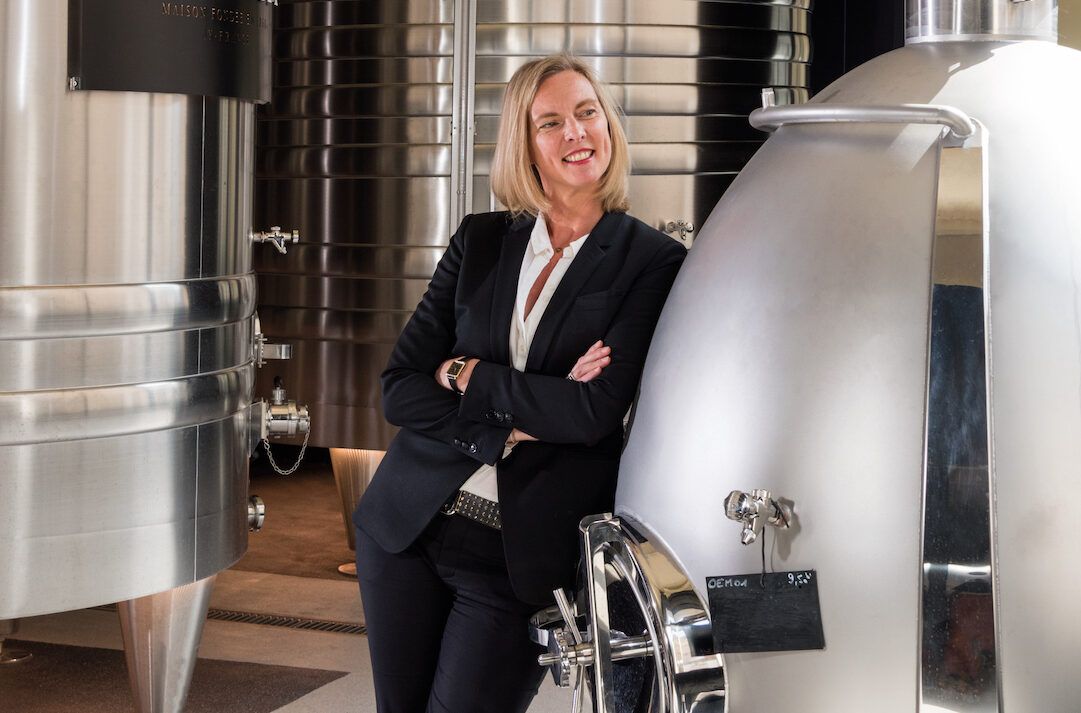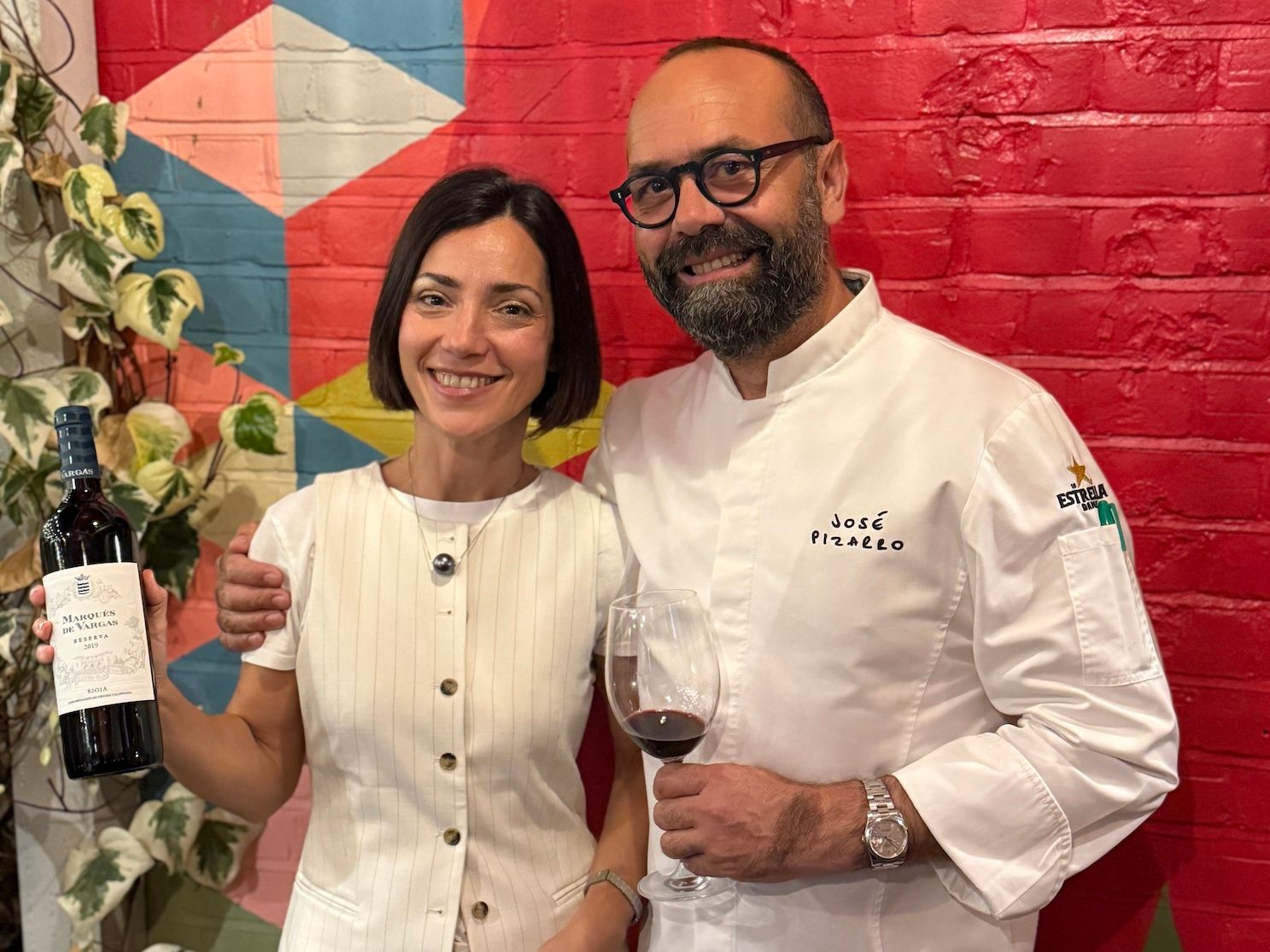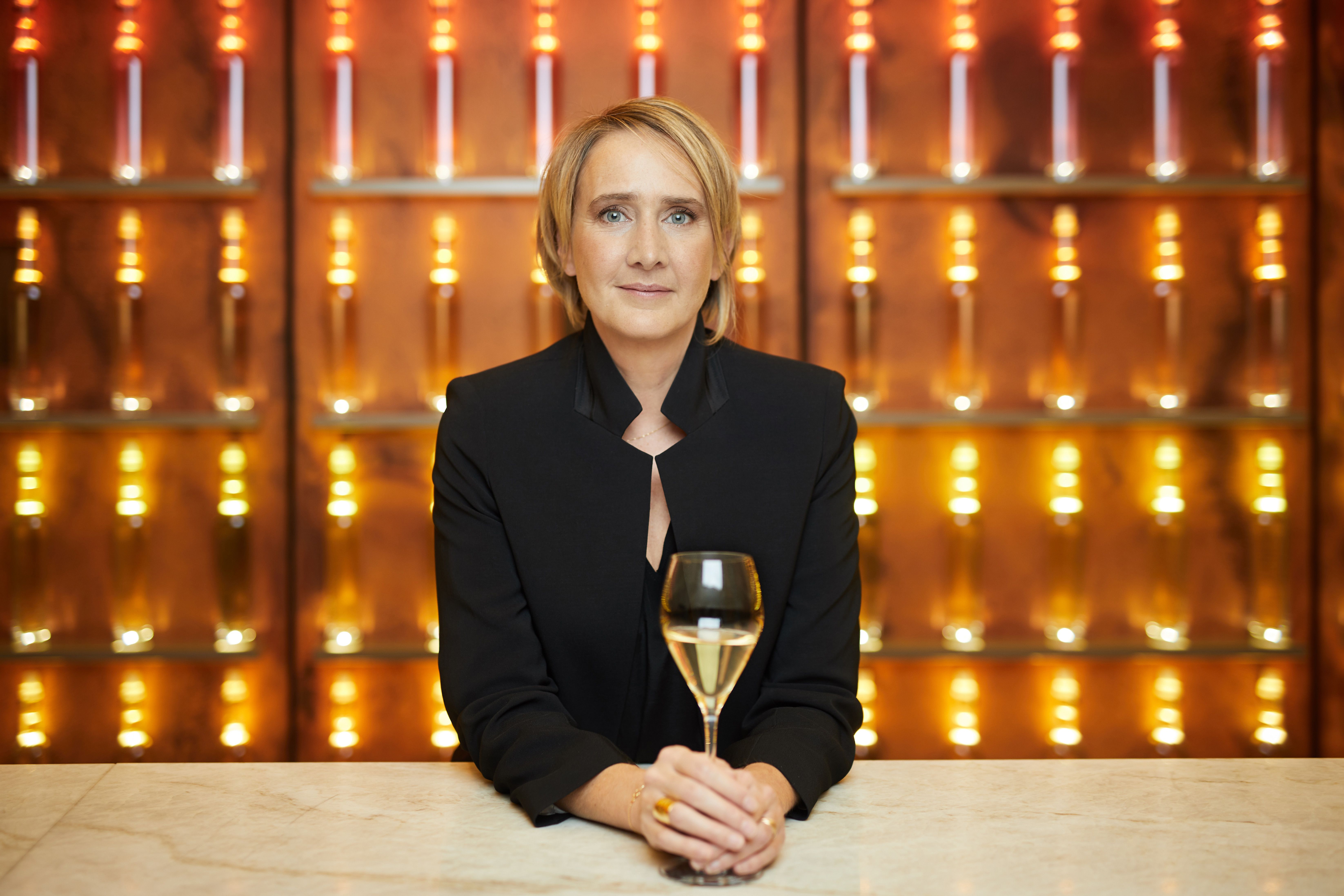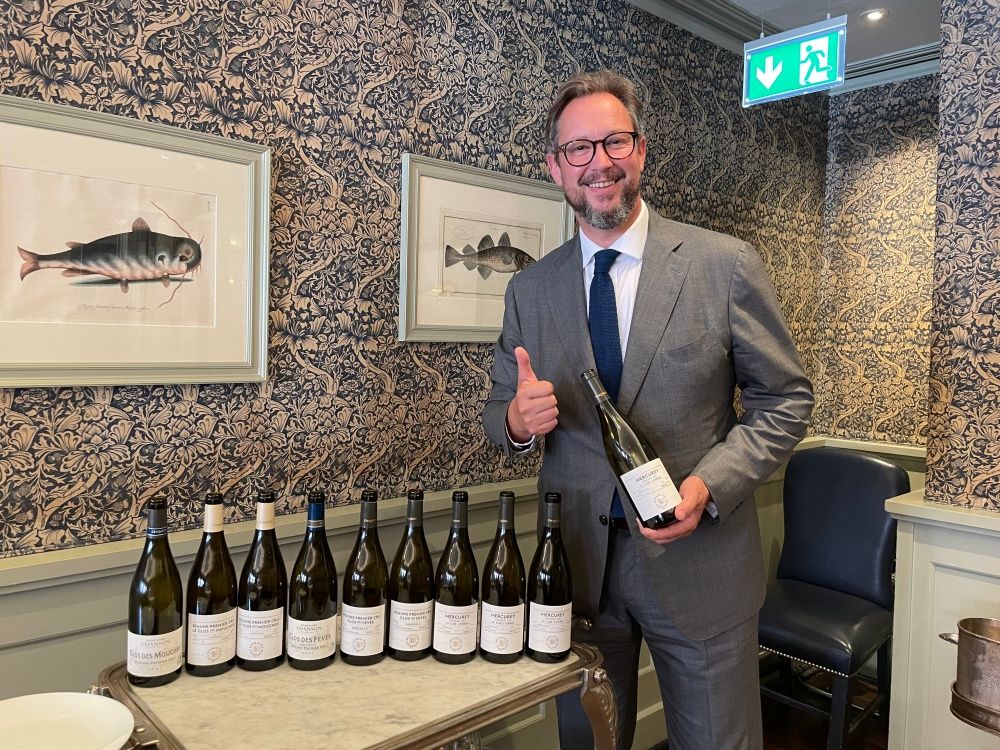“We feel that our customers need a sense of meaning and authenticity more than ever in the face of the uncertainty we all feel at the moment,” says Caroline Latrive.
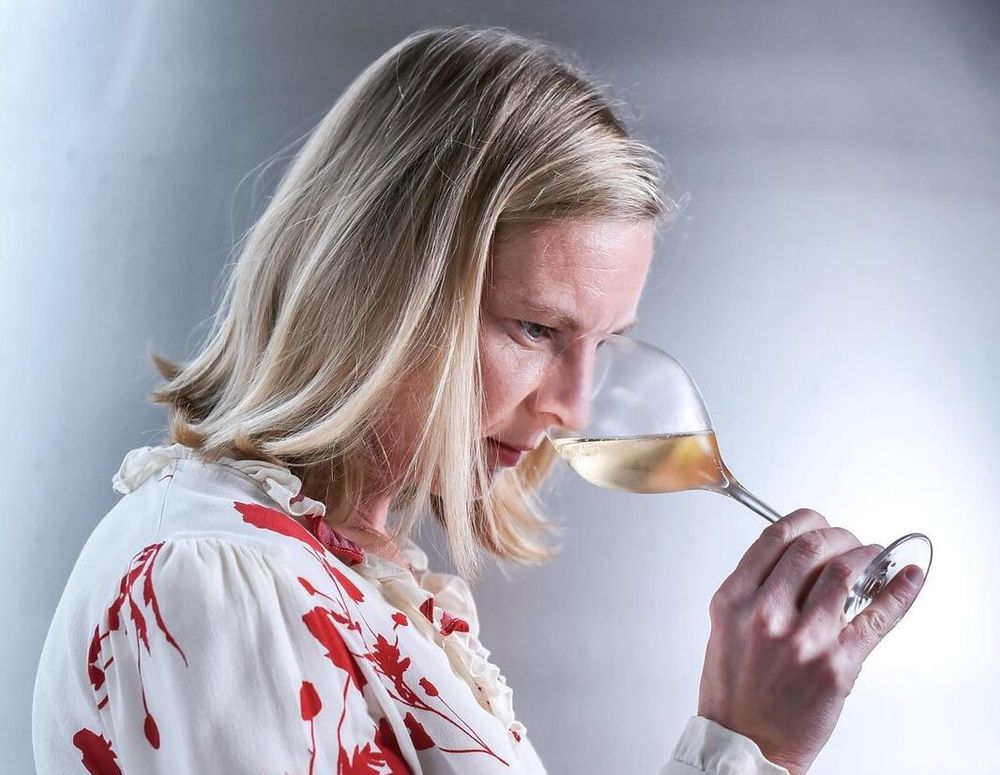
Caroline Latrive, who comes from Reims, is the chef de cave of AYALA, located in Ay, and one in a long line of influential winemakers in the region. Established in 1860 by Edmond de Ayala, and later purchased by the Bollinger group in 2005, AYALA is among one of the historic houses of Champagne.
Peter Dean: How has life been for the past 18 months?
Caroline Latrive: I think, like many businesses, we have had to adapt very quickly. We have prioritised keeping our staff safe while also trying to protect our commercial relationships as much as possible by keeping in constant communication with our partners, particularly our winegrower partners. Fortunately, we had an excellent harvest in 2020, which will in all likelihood be an exceptional year that wine lovers will discover through our prestige cuvées in 3, 5 or 10 years. This allows us to put things in perspective and look to the future, in a time when the pandemic often traps us into focussing on the short term.
How has the pandemic affected your winery?
We came to a brutal standstill at the beginning of the pandemic, and we closed our cellar for almost a month in March 2020, which hasn’t happened since the winegrower revolt in Champagne in 1911! We had to figure out internally how to organise ourselves best to keep producing and vinifying in the same way we would in “normal life” because, health crisis or not, vinification and ageing our wines continued, and we had to keep going!
Has life returned to normal yet?
In terms of production, everything has returned to normal. We have adapted our sanitation standards. We are lucky, we are a small, flexible and versatile team. We adapted quickly. On the sales side, Champagne AYALA was very present in the restaurant sector, so we have felt the effects of the COVID pandemic since the beginning of Q2 2020. However, as restaurants have gradually opened again, we have seen a veritable explosion of sales, and we have now totally returned to the level we were before the crisis, in fact, better if the current trend continues until the end of the year! Now the focus is being in a position to deliver to our customers, another challenge!
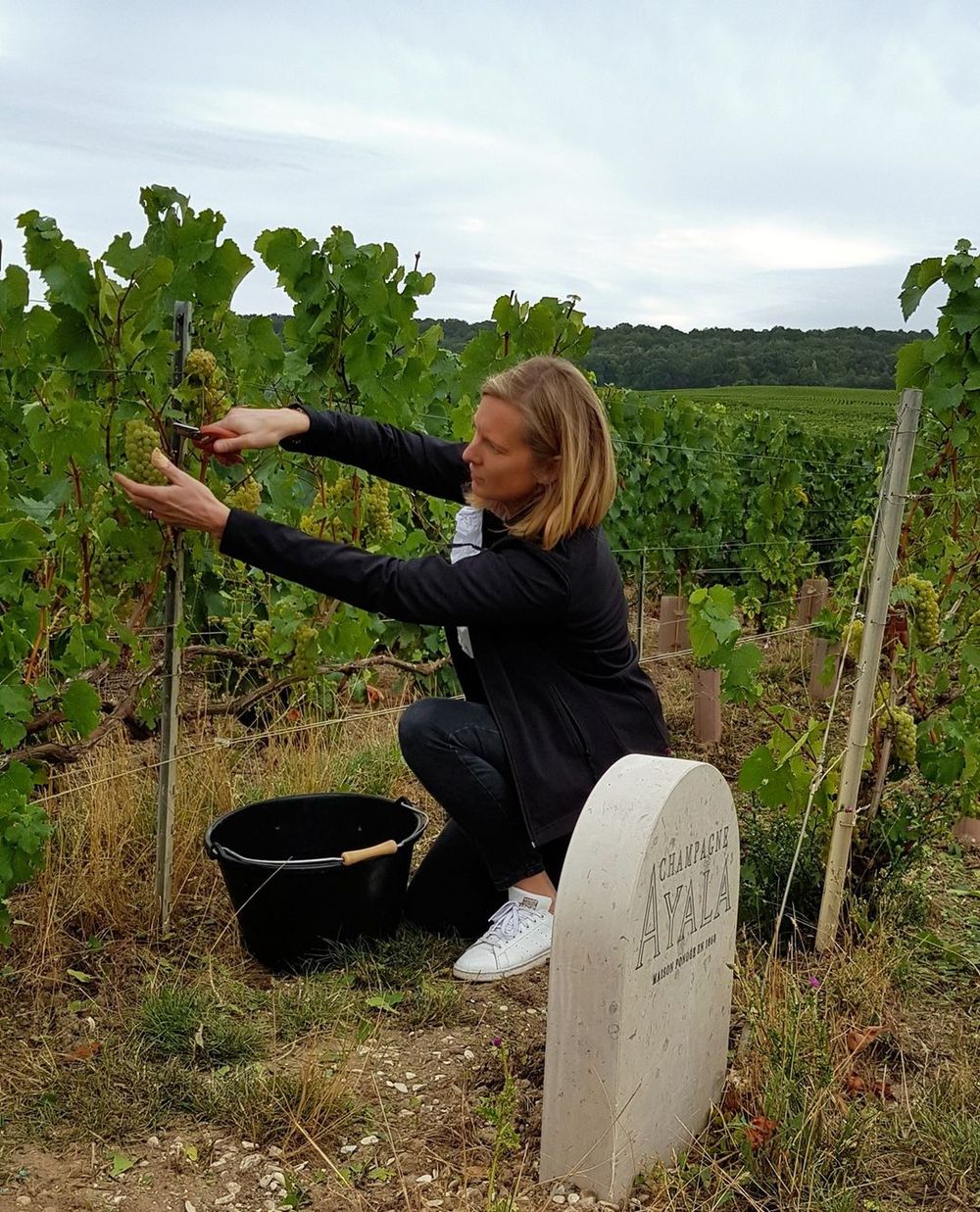
Latrive hand-picking grapes September 2020
What has been the hardest thing about adapting to the ‘new normal’?
We are in a business that starts from the land and which is, above all, grounded in human relationships and physical exchanges with our partners (winegrowers, distributors, independent retailers, restaurants, consumers). With COVID we have had to really develop our digital communication to maintain contact from a distance. Although that enabled us to continue to talk about our House and Champagnes, we now can’t wait to return to an environment where we can meet winegrowers, consumers and critics.
Has anything good come out of it? If so what?
We feel that our customers need a sense of meaning and authenticity more than ever in the face of the uncertainty we all feel at the moment. We have noticed that many of our clients want to know more about our family-owned winery, our savoir-fair, our boutique spirit. A House like AYALA, which has a long history but is small in size, with a tailor-made approach and a focus on craftsmanship and authenticity, will benefit from this growing interest from consumers.
What lessons do you think have been learned in the past 18 months?
That there are always people who are looking for top quality products. We have been surprised to see that our premium cuvées (Le Blanc de Blancs, Rosé Majeur, La Perle) have done really well during the pandemic. Consumers needed to treat themselves and couldn’t go to restaurants, so they went en masse to their local wine merchant to buy very special bottles!
Has it led to anything new in the pipeline? Cuvées, varietals, styles etc?
We launched a new collection in 2016, which includes limited-edition Grande Cru cuvées that we release at their zenith. After the AYALA N°8 (released in 2016) and AYALA N°7 (released in 2020), I can reveal that we will launch a new Opus in 2022. We can’t wait to unveil it!
In terms of the effect on your winemaking – how impactful has COVID been compared to Climate Change?
COVID has had a minimal impact compared to climate change, which is one of the biggest challenges we face in Champagne. It can impact our grapes, particularly Meunier, which doesn’t like intense heat and humidity, but it also causes climate incidents (frost, flooding, hail). These incidents have become more and more intense over the past few years. We are working together in Champagne to adapt.
What stage of the current growing cycle are you?
We are in the final sprint; the grapes are about to start ripening.
Is 2021 going to be a good harvest?
It is difficult to say that the next six weeks, especially the month of August, are important. We already know that we will have a small harvest because of spring frost and the mildew we have had over the last few weeks.
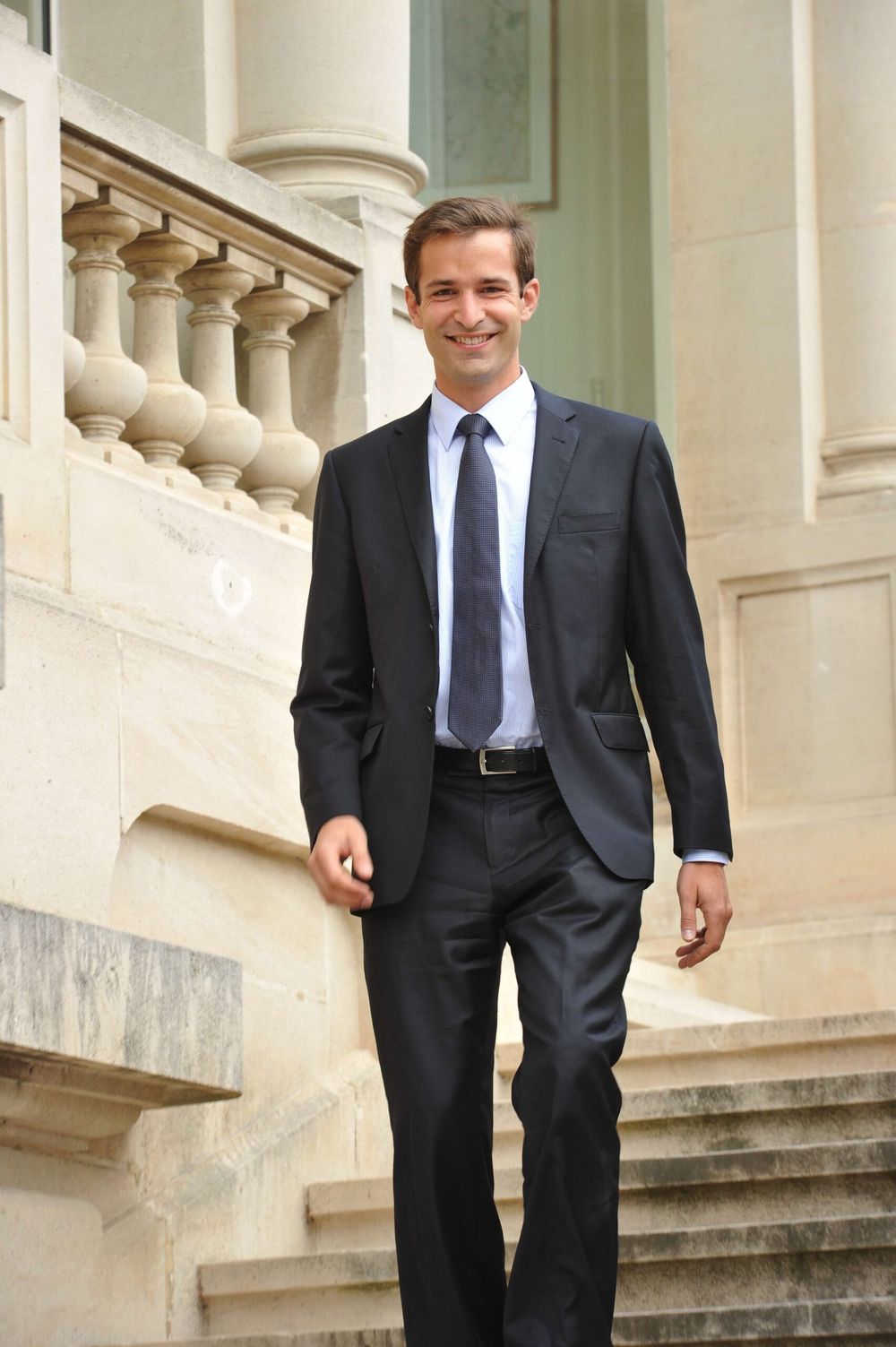
Hadrien Mouflard, director general AYALA
PD: How have you changed your business model over the past 18 months? (distribution channels, importers and distributors you work with?)
Hadrien Mouflard: We were very exposed as most of our distribution was in the on-trade before the pandemic, and it seemed absolutely necessary to balance our sales between different distribution channels, notably by benefitting from successful performance in independent retail and, of course, the boom in online sales.
Did you go Direct To Consumer? If so what were the lessons learned?
Of course, DTC is crucial while we move out of this crisis, and for the years to come. We hope to be as close as we can to our customers, giving them the most pertinent information possible and offering them unique experiences. AYALA is a great house, but it is a small one too, which differentiates us from the big brands. We hope to make the most of this boutique spirit and really develop our wine tourism offering, which includes direct to consumer sales in France.
Are you going to continue with a different trading model moving forwards?
It’s a key factor in our sector because we want to continue working with the two models, particularly bricks and mortar. Independents and the on-trade continue to be our key ambassadors and the advocates for our champagnes. We have to continue providing them with a high level of service and the unique wines that set our Maison apart and aren’t available in the multiples. At the same time, we must also respond to what our customers are asking for, who want a direct link with the House which offers them more personalised experiences and encourages them to come and visit our historic site in Ay, which we have invested a lot in over the last few years.
Have you changed which countries you are distributing to?
No, our key markets (France, England, America, Japan) remain our priority.
Has exporting to the UK changed at all – is it logistically more difficult and if so – are other countries more attractive/ profitable?
The English market is very competitive so perhaps a little less profitable than other countries that we export to, but it remains an exceptional showcase for our wines. We are lucky to work with prestigious accounts in England, in particular luxury hotels. The international clientele of these hotels then travels the rest of the world and becomes the best ambassadors for our brand! The English are great connoisseurs of Champagne, if you can succeed in this very competitive market it’s an excellent indicator that your strategy is working… and that your wines are top quality too!
The wines of AYALA are imported into the UK and distributed by Mentzendorff, which is a partner of The Buyer. To read more about them click here.
